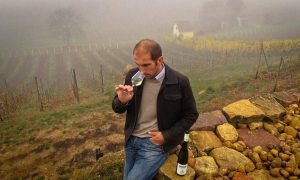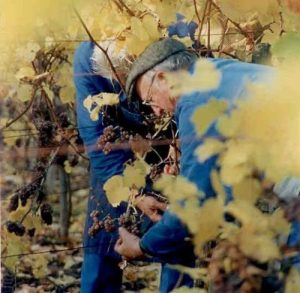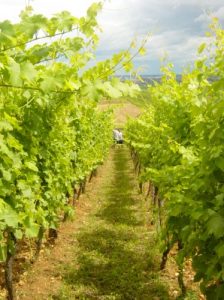One of many highlights on my recent holiday in Alsace was a wine tasting at Emile Beyer, one of the region’s long established wine producers. It was guided by Christian Beyer, the fourteenth generation of the clan, and it was the most eloquent exposition of the wine-maker’s craft I’ve ever heard.

He commented that the French word, viniculture, is more accurate and expressive of the craft than wine-maker: “at least eighty per cent of the skill is in the growing the grapes”.
For him the biggest challenge is in matching the type of vine with the type of soil. He said that he can distinguish the soil type through the flavour of the wine.

The challenge is further complicated by the long time cycle of viticulture. Their vines take 15 years to start producing, reach their peak at 25-40 years, and need to be replaced by 65. So the production currently depends on vines planted by Christian’s grandfather, and he is making planting decisions for the sixteenth generation, guessing at climate change and many other factors.
I was impressed to learn that over 30% of Alsace wines are now organically produced, and Beyer recently started using biodynamic standards, which are even higher. Christian believes these standards improve the wine, and their prices, and their environmental impact.

Christian’s views had many parallels with my natural happiness approach, and it intrigued me to think what new insights grow from using vineyards as the model, instead of gardens or farms.
The long timeframes are a big difference, and are closer to human life cycles. I believe that people also produce their best vintage when they match their temperament and hopes (‘the plant’) to their circumstances (‘the soil’). When they do, as Christian Beyer would say, eighty per cent of the work is done.
